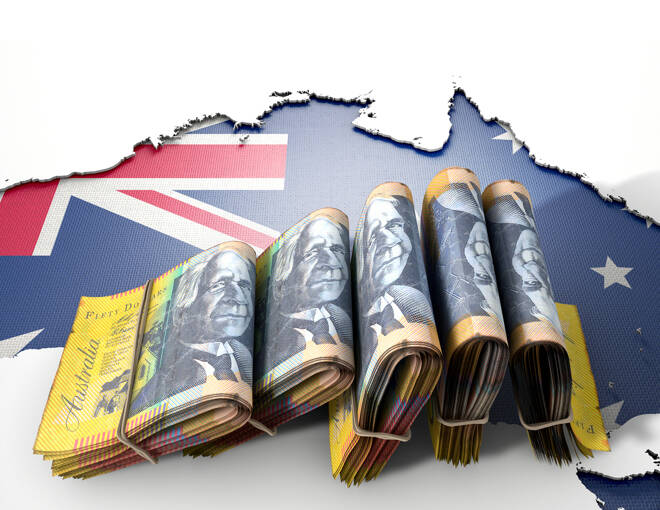Advertisement
Advertisement
Australia Looks on Regulating Cryptocurrencies in Overhaul of Payments
Updated: Mar 21, 2022, 14:49 GMT+00:00
The crypto reforms by the Australian government will focus on taxation, investor protection and regulation of crypto exchanges and digital banks.
Key Insights:
- The Australian government will regulate the crypto sector as a part of an overhaul of the payment system.
- The government is seeking inputs from the industry on crypto licensing and custody.
- Senator Andrew Bragg proposed Digital Services Act for crypto reforms.
Australia has finally announced plans for a significant overhaul of what it calls a three-decade payments system. The Australian government, on Sunday, promised the biggest overhaul of payment system reforms focused on the crypto regulatory framework.
Close to Crypto Regulations
Per reports from News Australia, the planned reforms will look into crypto taxation, investor protection, and regulation of crypto exchanges and digital banks.
During a blockchain event, Financial Services Minister Jane Hume said that the government would make sure all crypto actors comply in a regulatory ecosystem. She noted,
“The government can’t guarantee your crypto any more than it can guarantee a painting or a share in a company, and nor should it. But we can make sure Australian exchanges, custodians, and brokers work within a regulatory framework that is better, safer, and more secure.”
Crypto regulation in Australia emerged in 2021 after Treasurer Josh Frydenberg flagged that the government would look to announce new laws.
On the tax front, the Australian Board of Taxation (BoT) will scrutinize a comprehensive report on the policy framework for cryptocurrencies like BTC and ETH. The Morrison administration wants BoT to consider tax regulations without burdening citizens with more tax.
Government to Unveil Critical Papers
Furthermore, the Morrison government will release three key papers that aim to reform the payments sector. The first document released today has sought the industry’s views on classifying licensing and custody regimes for crypto assets.
Hume noted that the government seeks feedback on crypto regulation before finalizing frameworks later this year. She said in a speech today,
“The regime is being developed so consumers can trust the exchanges they use to trade crypto.”
The Treasury had been recommending forcing crypto exchanges to hold digital assets of Australian investors within the borders.
Additionally, the government will reveal the terms of reference for two unrelated investigations into the crypto sector by the nation’s competition and finance agencies. The inquiry will be on the “de-banking” in fintech, where a bank withdraws to offer or continue its services to a customer.
Digital Service Act: Senator Bragg Report
Australian lawmakers have been helping a hand in pushing for crypto regulation, led by Senator Andrew Bragg.
Speaking at a conference, Bragg proposed Digital Services Act (DSA) legislative package that will focus on crypto reforms, including licensing, custody, DAOs, de-banking, tax, and tokens.
Building on Australia’s crypto hub ambitions: address to @BlockchainAUS.https://t.co/j79BpbGJKI pic.twitter.com/8bf7Sqjut4
— Senator Andrew Bragg (@ajamesbragg) March 20, 2022
In his speech, Bragg said that he expects the legislative package to protect consumers against bad actors in the space. He said,
“It would protect consumers – who at last count were 20% of the Australian public – against malicious operators.”
Talking about the decentralized autonomous organizations (DAOs), Bragg said that they pose an “existential threat” to the tax base. He added that they must be recognized and regulated as a matter of urgency.
Last year, the Senator filed a parliamentary report, which found Australia’s current legislation is unfit for the crypto sector. He also called on the government to perform a policy review of the feasibility of a retail central bank digital currency (CBDC).
Bragg recently called the government to consider hiring crypto experts to help craft crypto regulations within an assigned unit.
Beyond government and administrations, individual lawmakers such as Senators, Governors, and Congressmen are keen on furthering crypto regulation and adoption.
In the U.S., pro-crypto Republican Senators including Ted Cruz and Cynthia Lummis have explicitly disclosed their Bitcoin holdings. Cruz recently bought BTC worth between $15,001 to $50,000 on January 25. That was the time when the crypto was plummeting at $37,936.6.
Cynthia Lummis roughly bought $250,000 of BTC, making her the most heavily invested U.S. lawmaker in the digital asset. Alabama Congressman Barry Moore revealed similar disclosure last year, purchasing Ethereum, Cardano, and Dogecoin.
About the Author
Sujha Sundararajanauthor
Sujha Sundararajan is a writer-journalist with 7+ years of experience in Blockchain, Cryptocurrency and in general, FinTech news reporting. Her articles have featured in multiple journals such as CoinDesk, Protos, Bitcoin Magazine, CCN, Asia Blockchain Review, BeInCrypto and EconoTimes to name a few. She holds a Master’s in Journalism from the Indian Institute of Journalism and New Media and is also an accomplished Indian classical singer.
Advertisement
